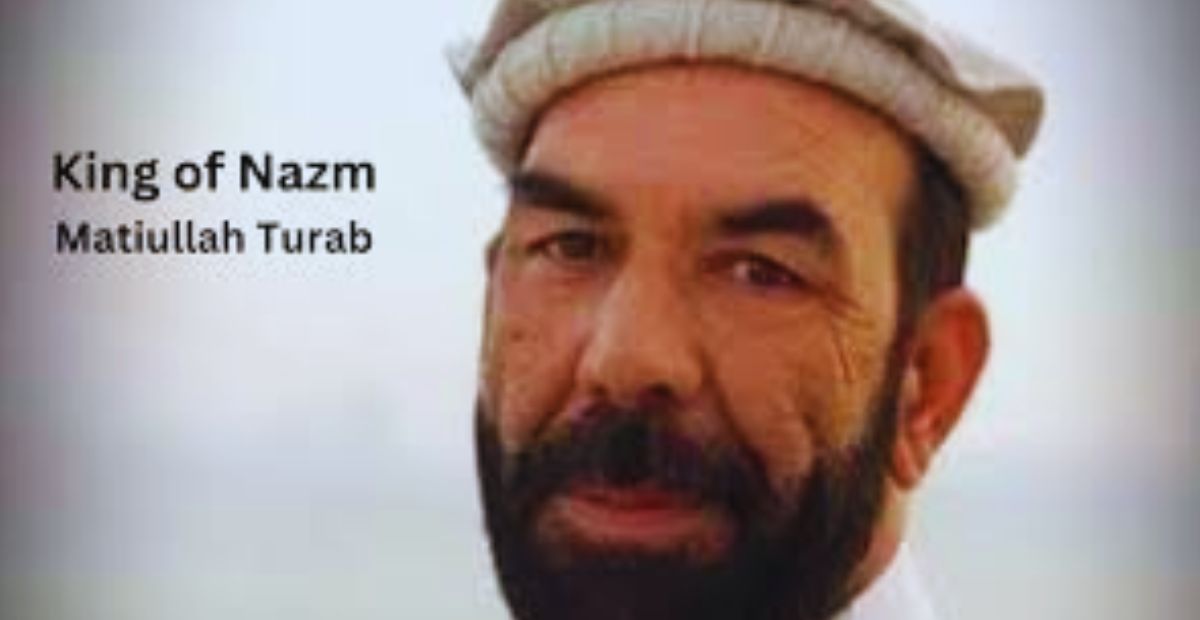Meta Description:
Explore the life and literary journey of Matiullah Turab, a renowned Pashto poet from Afghanistan, known for blending traditional Pakhtoonwali values with powerful resistance poetry.
Matiullah Turab: The Voice of Pashtun Resistance
In the rugged mountains of Nangarhar Province, where poetry flows as naturally as the rivers, Matiullah Turab (مطیع الله تراب) emerged as a rare voice — a blacksmith by trade, and a poet by destiny. Born on 21 March 1971 in Khogyani, Nangarhar, Afghanistan, Turab turned the harsh iron of daily life into verses that resonate with the soul of his people. Known by his pen name “Turab Saib” (تراب صیب), his words have echoed from the streets of Kabul to the tribal valleys of Khyber Pakhtunkhwa.
A Life Shaped by War and Migration
Like countless Afghan families, Turab’s childhood was disrupted by war. Fleeing the Soviet invasion, his family sought refuge in Kurram Agency, Pakistan, part of the former FATA region in Khyber Pakhtunkhwa. This experience of exile and return left a deep mark on his poetry, infusing it with themes of displacement, resilience, and identity. After years in Pakistan, he returned to Afghanistan in the 2000s, settling back into his homeland while carrying with him the burden and inspiration of exile.
Poet by Soul, Blacksmith by Trade
What sets Matiullah Turab apart is not just his poetic genius, but his humble profession. Working as a car body maker, he bends metal by day and molds words by night. His dual identity—one grounded in labor and the other in art—has earned him global recognition. As the New York Times and BBC have reported, Turab represents the rare combination of a working-class artist whose verses speak truth to power.
The Power of Pashto Poetry and Pakhtoonwali
Turab’s literary work draws heavily on Pakhtoonwali, the traditional Pashtun code of honor. His poetry upholds values of hospitality, bravery, resistance, and justice. Unlike romanticized verses, his poems often carry a sharp political tone, especially in the post-9/11 era when Afghanistan was plunged into further chaos. His work stands as a form of literary resistance, reflecting the pain, pride, and persistence of the Afghan people.
Notable Works of Matiullah Turab
Turab has authored several influential collections of Pashto poetry, including:
- Ghubar Par Hindaro
- Llami Gullona Da Karni Oba
- Speen Baghawat (White Rebellion)
Each of these works delves into the Afghan experience—conflict, cultural identity, and the undying hope for peace.
Turab’s Influence Across Borders
His poetry has not only found an audience in Afghanistan but also among Pashtuns across the Durand Line, especially in Pakistan’s tribal regions. His verses are shared on social media, recited at literary gatherings, and even quoted in political debates. Turab has become an emblematic figure in Pashto literature, representing both the pain and poetry of a war-torn region.
Conclusion: The Iron Will of a Poet
Matiullah Turab is more than a poet—he is a symbol of resilience, cultural pride, and poetic resistance. In a land scarred by decades of war, he reminds us that poetry can still bloom, even from the ashes. His life is a testimony to how art survives, even thrives, amidst adversity.
Keywords: Matiullah Turab, Pashto poet, Afghan poetry, Pakhtoonwali, resistance poetry, Pashto literature, Nangarhar poet, Afghan blacksmith poet
